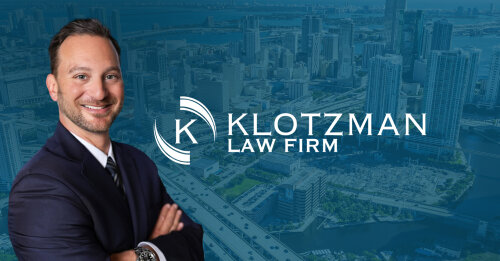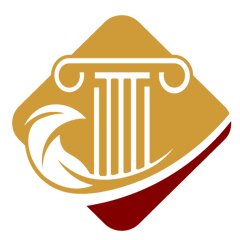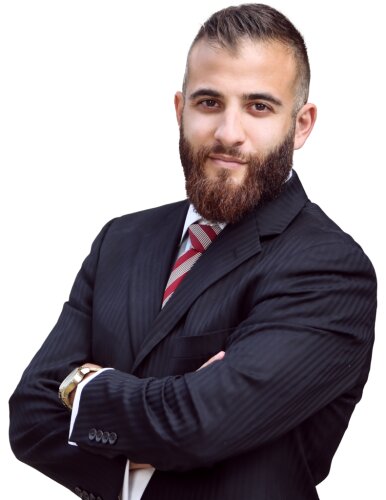Best Drugs & Medical Devices Lawyers in New York City
Share your needs with us, get contacted by law firms.
Free. Takes 2 min.
List of the best lawyers in New York City, United States
About Drugs & Medical Devices Law in New York City, United States
In New York City, regulation of drugs and medical devices operates on three levels: federal, state, and local. The U.S. Food and Drug Administration (FDA) oversees safety, labeling, and premarket clearance for drugs and devices across the country. At the state level, the New York State Department of Health (NYSDOH) enforces licensing, distribution, and facility standards within New York State. Locally, the New York City Department of Health and Mental Hygiene (NYC Health Department) and related city agencies apply additional rules for pharmacies, medical facilities, and consumer protections within NYC. Understanding how these layers interact is essential for patients, providers, manufacturers, and distributors in NYC. FDA.gov • Health.NY.gov • NYC Health Department
Key point: Compliance decisions in NYC must account for federal requirements, state licensing and enforcement, and city level health codes. Misbranding, adulteration, or improper advertising can trigger actions from multiple agencies. The interplay among these rules creates complex risk for regulated businesses and healthcare professionals in NYC.
“The FDA regulates medical devices to ensure safety and effectiveness before they enter the U.S. market.”FDA.gov
Why You May Need a Lawyer
New York City residents and entities face concrete regulatory risks in the Drugs & Medical Devices space. A focused attorney can help you navigate agency actions, avoid penalties, and protect your rights. Below are real-world NYC scenarios where legal counsel is often essential.
1) Your pharmacy faces a NYSDOH licensing action for misbranding or adulterated drugs. A NYC pharmacy might be investigated for dispensing practices or improper labeling. A lawyer helps gather records, respond to letters of inquiry, and negotiate with the NYSDOH to avoid license suspension. This work also supports potential appeals or consent orders.
2) A medical device startup must meet both FDA and NY state requirements before NYC sale. A device maker launching in NYC must obtain FDA clearance or approval and ensure NYS registration and facility compliance. An attorney coordinates filings, such as regulatory submissions and state licensing, and advises on recall readiness and postmarket reporting.
3) A hospital faces enforcement actions for advertising or misbranding a medical device or drug. City and state agencies examine truthfulness of claims and labeling. A solicitor can negotiate settlements, prepare compliant marketing materials, and guide remediation steps to avoid further penalties.
4) A physician or clinic is subject to disciplinary proceedings for controlled substances use or record keeping. NYC practitioners must comply with federal and state prescribing rules, patient record standards, and possible Board actions. An attorney helps with hearings, privilege issues, and regulatory defense.
5) A consumer experiences a device recall in NYC and needs guidance on compensation and filing adverse event reports. An attorney can steer the recall process, assist with adverse event reporting, and help protect consumer rights.
6) A company seeks to expand a device into New York and faces evolving digital health and cybersecurity requirements. NYC and NYS regulators increasingly scrutinize software as a medical device and data security. An attorney updates you on requirements, drafts policies, and coordinates with regulators.
Local Laws Overview
NYC drugs and medical devices are governed by federal law, state law, and city-level health codes. The key authorities and statutes you should know include federal premarket requirements, New York State Public Health Law, and local NYC Health Code provisions. Understanding these layers helps you prepare compliant strategies and avoid enforcement risk. FDA, NYSDOH, NYC Health Department
Federal framework: the Food, Drug, and Cosmetic Act and related regulations
The Federal Food, Drug, and Cosmetic Act (FD&C Act) provides the baseline for drugs and medical devices. It governs safety, labeling, and marketing claims and is implemented through FDA rules found at 21 C.F.R. A premarket approval (PMA) or clearance via 510(k) is usually required for devices, while drugs require substantial evidence of safety and effectiveness. These standards apply across New York City as they do nationwide. For official details, see FDA's device and drug information pages.
“The FDA regulates medical devices to ensure safety and effectiveness before they enter the U.S. market.”FDA.gov
New York State Public Health Law (PHL)
New York State Public Health Law governs licensing, registration, and operational standards for healthcare facilities, pharmacies, and distributors operating in the state. It creates penalties for illegal distribution and misbranding and requires compliance with state labeling and compounding rules. The NYSDOH enforces these provisions within the state, including NYC. For comprehensive text, consult the NYSDOH public health law resources.
New York City Health Code and Administrative Code
NYC Health Code provisions address the local administration of health services, including requirements for pharmacies, the handling of medications, and the operation of medical facilities within NYC. These rules complement state and federal standards by addressing city-level public health concerns and enforcement. Access to the NYC Health Department's rules is available on the city’s official site.
NYC Health Department • NYC Administrative Code
Frequently Asked Questions
What is the difference between a drug and a medical device?
A drug is a substance intended to diagnose, cure, treat, or prevent disease. A medical device is equipment used for medical purposes without primarily performing therapy itself. The FDA classifies devices into risk-based categories with distinct clearance routes.
How do I know if my product is regulated as a drug or a device in NYC?
Review the product’s intended use, mechanism of action, and labeling. If the primary function is therapeutic, it is often a drug or biologic; if it supports diagnosis or treatment without providing pharmacologic action, it is usually a device.
How much does it cost to hire a Drugs & Medical Devices attorney in NYC?
Costs vary by matter complexity and attorney experience. Expect hourly fees in the hundreds to over a thousand dollars per hour, plus potential flat fees for certain services. A detailed engagement letter clarifies rates and expenses.
How long does a regulatory action take in New York?
Timelines depend on action type. Licensing matters can take weeks to months; enforcement actions and recalls can extend to several months or longer, depending on agency schedules and actions.
Do I need a local NYC attorney or can a remote attorney help?
A local attorney improves access to NYC agencies, courts, and familiarity with city-specific procedures. Remote counsel can work but should have NY licensing and local practice knowledge.
What is premarket approval vs clearance for devices?
Premarket approval (PMA) is a stringent FDA process for high-risk devices. Premarket clearance (510(k)) demonstrates substantial equivalence to a legally marketed device.
Can I challenge a NYSDOH registration denial?
Yes. You may request a hearing or appeal the decision, often with a lawyer who understands NYS administrative procedures and evidentiary rules.
Should I hire a lawyer for a device recall in NYC?
Yes. A lawyer helps navigate recall notices, communicate with the FDA and NYSDOH, and advise on consumer remedies and business implications.
Do I need to keep records for a certain period?
Yes. Agencies require records related to drugs and devices to be maintained for specific timeframes, often several years. Your attorney can tailor a retention policy to your operation.
What is the difference between federal and state requirements in NYC?
Federal rules set baseline safety and labeling standards; state rules address licensing, distribution, and practice within New York. NYC adds local health code requirements on top.
How do I find a specialized Drugs & Medical Devices solicitor in NYC?
Start with the New York State Bar Association and the Office of the Professions directory. Then seek referrals from healthcare clients and schedule consultations to assess fit.
Additional Resources
These official resources provide reliable information on Drugs & Medical Devices regulation and enforcement in New York City and New York State.
- U.S. Food and Drug Administration (FDA) - regulates drugs and medical devices nationwide, provides guidance on premarket submissions, labeling, and recalls. FDA.gov
- New York State Department of Health (NYSDOH) - oversees licensing, registration, and public health standards for drugs, devices, and healthcare facilities in New York. Health.NY.gov
- New York City Department of Health and Mental Hygiene - enforces local health rules, licensing, and compliance within NYC. NYC Health Department
Next Steps
- Identify your regulatory issue and gather all related documents, notices, labels, and correspondence. Create a timeline of events and agency actions.
- Contact a NYC-licensed attorney who specializes in Drugs & Medical Devices law for a 60-minute initial consult. Bring all documents and a list of questions.
- Obtain a written engagement letter outlining scope, fees, and anticipated milestones. Confirm the attorney’s experience with NYSDOH and FDA processes.
- Develop a regulator-facing plan with clear objectives, potential defenses, and a negotiation strategy for any consent orders or settlements.
- Prepare a comprehensive record-keeping and compliance program for your facility or product to reduce future risk. Implement within 30 days if possible.
- File any necessary appeals or administrative reviews within the deadlines set by FDA or NYSDOH. Your attorney should track all deadlines meticulously.
- Schedule periodic progress updates with your attorney to reassess strategy as the matter evolves and to adjust timelines.
Lawzana helps you find the best lawyers and law firms in New York City through a curated and pre-screened list of qualified legal professionals. Our platform offers rankings and detailed profiles of attorneys and law firms, allowing you to compare based on practice areas, including Drugs & Medical Devices, experience, and client feedback.
Each profile includes a description of the firm's areas of practice, client reviews, team members and partners, year of establishment, spoken languages, office locations, contact information, social media presence, and any published articles or resources. Most firms on our platform speak English and are experienced in both local and international legal matters.
Get a quote from top-rated law firms in New York City, United States — quickly, securely, and without unnecessary hassle.
Disclaimer:
The information provided on this page is for general informational purposes only and does not constitute legal advice. While we strive to ensure the accuracy and relevance of the content, legal information may change over time, and interpretations of the law can vary. You should always consult with a qualified legal professional for advice specific to your situation.
We disclaim all liability for actions taken or not taken based on the content of this page. If you believe any information is incorrect or outdated, please contact us, and we will review and update it where appropriate.
















